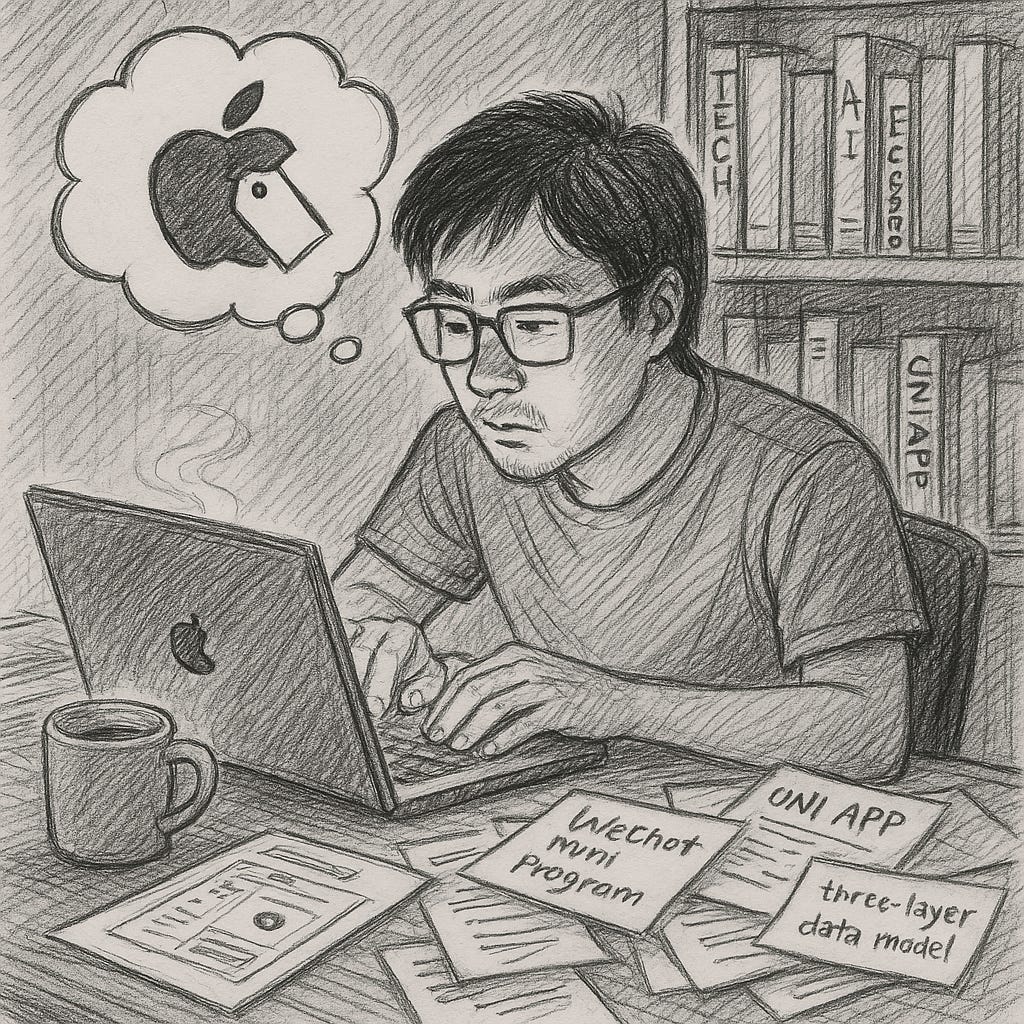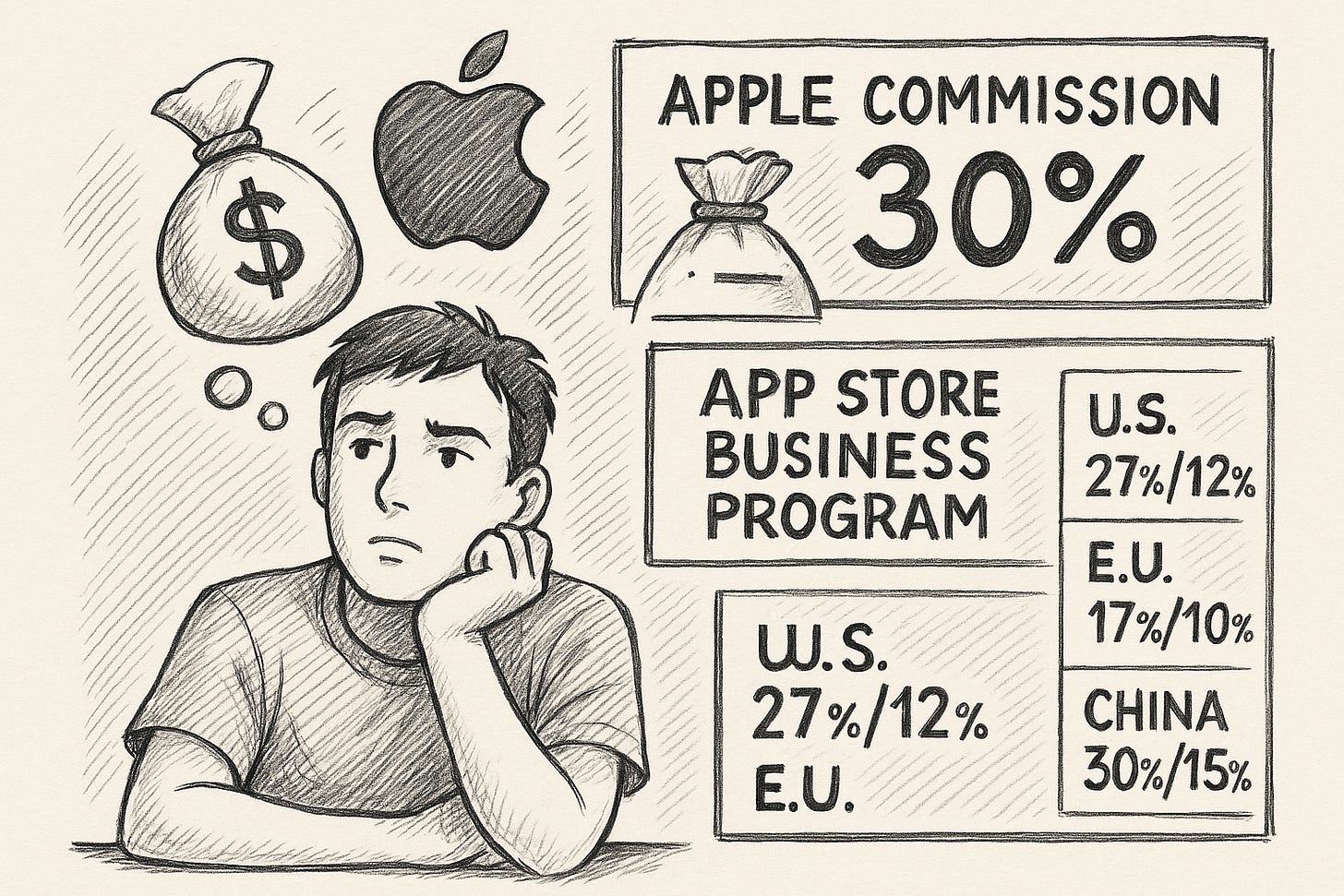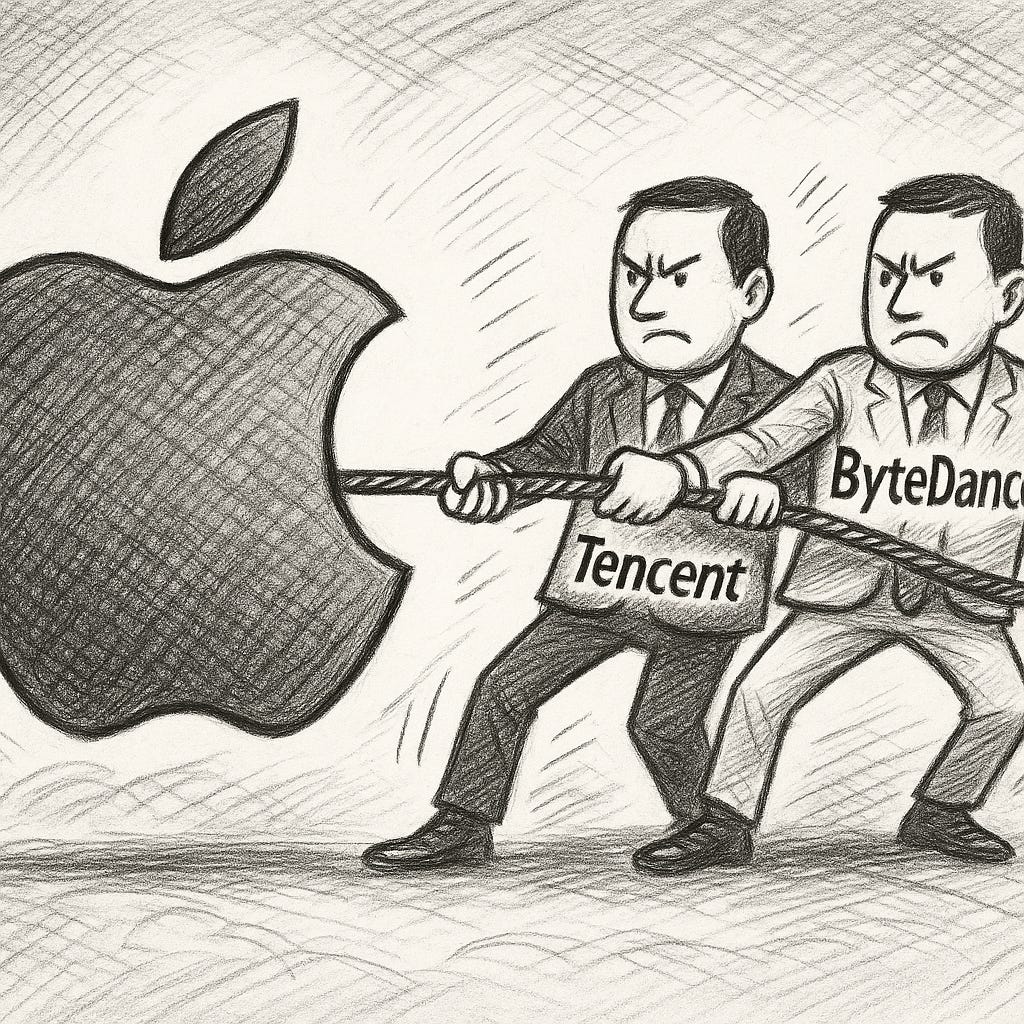Apple Tax through the eyes of a first-time developer from China
Thanks to AI and shifting global regulations, it’s probably the best time to be an indie app developer who wants to make money. But for Chinese developers, that moment still hasn’t arrived.
Note: the first-time developer from China is me.
It was a wild, wild May. One of the wildest I can remember.
When I restarted this newsletter, I had planned to keep it weekly. That didn’t happen last month. I got derailed, not by laziness but by an unlikely collision of projects—all demanding and, somehow, all positive.
So basically, I found myself editing China tech news stories every day for a tech blog; running a Xiaohongshu account about wireless audio and gear; flying to Macau to catch up with old friends I hadn’t seen in six plus years and moderating a panel on sports tech; researching a story about Pangdonglai and YH Supermarket; and, most improbably, learning to “vibe code.”
Yes, code. For an English lit major whose last math class was 19 years ago, I never thought I had it in me. But with the help of AI, I managed to build, in just three weeks, not one but two fully functional full-stack web apps that had been lingering in my head since last year.
The code story, I’ll save for another post. This one is about the moment I realized I needed to think about money.
The app I made is, in short, a Brickset for Dolby Atmos music. A neat little WeChat mini program: clean, focused, and (so I’m told) “not like a mini program at all.” Many WeChat mini programs people encounter every day are cluttered and ad-riddled. I designed mine to feel elegant, but the downside is that no tip jars and no sponsored banners also mean no revenue.
So I thought: why not make an iOS app? It could be the most gently dignified way to ask for money. I can add exclusive features like in-app music playback in return for their maybe 9.99 dollar favor. Not just for the utility, but as a kind of patronage.
Then a CTO friend talked me out of it.
First, there’s the $99-a-year developer fee. But more significantly, there’s the infamous Apple Tax, a commission that goes straight to Cupertino for every dollar an app earns. That means if I want to keep prices reasonable, I either take the hit myself, or raise the price and risk losing exactly the users I’m trying to reach.
To sustain a cashflow, I’d need to market harder, cut price tags, and even compromise on design. The math doesn’t add up.
It made me think about the Epic Games vs. Apple case, when the US regulators finally began to push back. After years of litigation, the April 2025 ruling found Apple in contempt for undermining previous court orders. The court concluded that external payment links must not be subject to Apple’s commission. Spotify moved fast. Within days, its US app included external links for premium subscriptions.
In Europe, under the Digital Markets Act, Apple was fined €1.84 billion for anti-competitive behavior. Korea and Japan also passed laws targeting app store gatekeeping. Globally, Apple’s garden walls began to show cracks.
But in China, things remain unchanged.
I’ve acknowledged that if you are a small business, you’re eligible for the App Store Business Program , cutting the commission to 15%, which is nice until you realize that Apple charges different rates in different regions.
In the US it’s 27% for standard enterprises and 12% for small businesses; in the EU, 17% and 10%; in South Korea, 26% and 11%.
China’s 30% and 15% are the highest tier across all markets. Moreover, unlike in those markets, Chinese developers are still not permitted to implement external payment systems or link to third-party payment services.
In fact, Apple collects more from developers in China than almost anywhere else. In fiscal 2024, its estimated commission revenue from China alone reached 49 billion yuan (roughly $6.7 billion), calculated from Apple’s $66.95 billion revenue in Greater China, with App Store commissions accounting for a significant 10% share of its services segment, roughly a third of the country’s total investment in AI chips that year.
ByteDance, WeChat, even gaming giant miHoYo have found themselves boxed in. Before the 618 shopping festival last year, Apple reportedly delayed Douyin’s app updates until it agreed to route payments through Apple-approved channels. To many, this wasn’t negotiation. It was pressure.
The irony stings. And yes, I envy that in Europe, developers can now use third-party app stores, alternative payment systems, and benefit from lower commission rates. In China, we still pay full freight.
But I’m also happy to see that in Asia, things are starting to change. The Japanese legislative momentum accelerated in 2024 when the Diet passed the Act on Promotion of Competition for Specified Smartphone Software, targeting dominant app store operators like Apple. The law, set to take effect in December 2025, mandates that users be allowed to install third-party app stores and use alternative payment systems on iOS.
In South Korea, change came earlier. As far back as 2021, the country passed a landmark amendment to its Telecommunications Business Act, becoming the first in the world to ban app store operators from forcing developers to use their own in-app billing systems. Enforcement began in earnest in 2022, and though Apple introduced an alternative payment option, it also imposed a 26% commission—prompting further pushback from regulators. These cases helped set global precedent for app store antitrust scrutiny.
With Beijing’s increasingly assertive stance toward American tech firms, Apple may soon face its first formal reckoning in its second-largest market. China’s State Administration for Market Regulation (SAMR) is now preparing to launch an antitrust investigation into these exact issues.
Which brings me back to my modest idea. It’s one thing to say “don’t bother with an iOS app.” It’s another to realize that the platform owner takes more from my software than anyone else in the chain. Apple provides no hosting, no promotion, no payment risk—just a rule: 30%/15% goes to them, because they say so.
I’m not calling for a boycott, and I’m not suggesting China should replicate Brussels overnight. But the silence has a cost. With no regulatory pressure, Apple’s China App Store remains its most lucrative and least contested market.
That’s why I’m thinking twice about submitting my app. It’s not just about $9.99. It’s about a platform that sets its rules in the dark, for a game I can’t shape.
Feature image generated by ChatGPT





